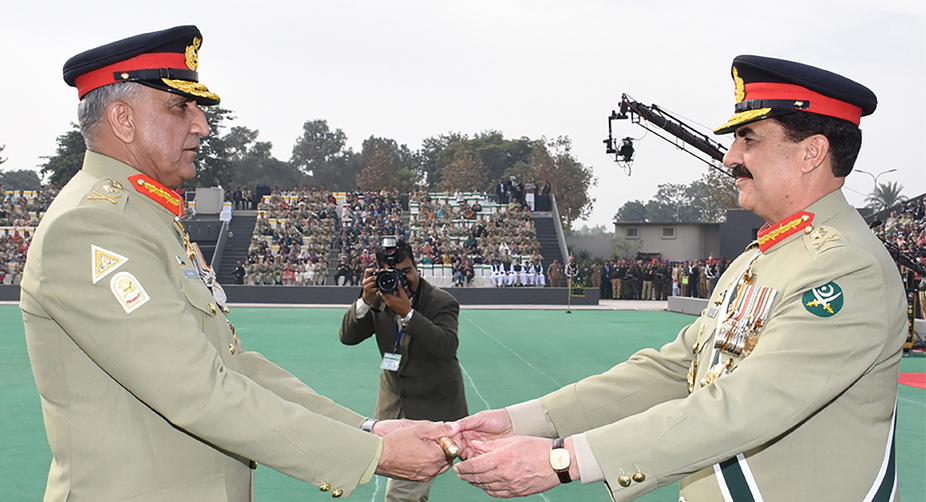The appointment of an army chief may dominate headlines for weeks in Pakistan but not in India. But it is an important post, as the individual would head the ultimate element of power of the nation, especially when the situation along the borders is active. Rumours abound of the government mulling the simultaneous appointment of a Chief of Defence Staff (CDS). This would imply a departure from the normal, which could trigger a fresh political battle as the opposition has a divergent view. Hence, the government would await the conclusion of the ongoing parliament session before making a formal announcement.
For years, governments hesitated to bring about this vital change, claiming lack of political consensus, whereas the truth was their fear of placing excess military power in the hands of one individual, fearing a coup. This showed a clear lack of understanding of the Indian military ethos. This appointment could signal introduction of essential changes in management of defence, which India requires.
After the retirement of the western army commander a few months ago, the post remained vacant for over a month as the government considered its options. It was for the first time that an important army command stretching from Jammu was without a head. Two service chiefs are scheduled to retire at the end of this month. Under normal conditions and as has been the norm for decades, their replacements are announced two months in advance. There is little over a fortnight to go and yet there is no formal announcement.
A timely announcement has many benefits, contrary comments of the defence minister notwithstanding. Firstly, it permits a smooth transition, as the incumbent if not located in Delhi has time to visit and undertake familiarisation and briefings from various branches of the service headquarters. Thus when he assumes his appointment, he is immediately effective. Secondly, once his appointment is announced all major decisions and postings involve his concurrence, as he would be the individual to implement them as also the new appointees would serve under him. Finally, it tells the rank and file who would now guide the force.
Normally in India, it is always the senior most officer who is appointed chief of the service. The rule was broken twice in Indian army history, the first being prior to the emergency when Mrs Gandhi appointed General Raina in place of General Rawlley, who was senior. The second was the appointment of Gen Vaidya as the chief in place of his senior, Gen SK Sinha.
Gen Sinha went on to become the governor of Assam and J and K, where he did a marvellous job in restoring normalcy. In both cases, the generals were considered as outspoken by the government. The rule has also been ignored, on occasions, in the case of the air force. In case the government simultaneously appoints a CDS, then two could possibly be appointed from the army.
In Pakistan, the Prime Minister is at liberty to appoint the next chief from a list of senior most probables, forwarded by their concerned service headquarters. Their new army chief, General Bajwa was fourth in seniority. His appointment was announced only two days before his predecessor retired, giving him no time for familiarisation. This was possibly to avoid inviting the wrath of the out-going chief, as the individual was not in his chosen list.
In Pakistan, the political leadership selects, based on who is best suited to ensure continuation of democracy. Nawaz Sharif has appointed five army chiefs during his various stints as Prime Minister. In each case, he hoped the service chief would support his government. He was compelled to resign by Gen Waheed Kakar and overthrown in a coup by Gen Musharraf, both of whom he appointed. His relationship with the last chief, Raheel Sharif, was strained to say the least. This concept has a major disadvantage, as those in line lobby discreetly for the post.
In Indian states, the Chief Ministers are at liberty to choose their police chiefs and senior bureaucrats, avoiding the seniority protocol. A new government invariably changes previous government appointees. In a recent case, the chief secretary of UP was moved out and replaced by his junior. In every case, the new person immediately assumes charge. This has never happened in the military. A service chief completes this tenure and retires, irrespective of change of government. There have been two cases in the navy, one where a service chief was removed and another where he resigned voluntarily taking the blame for poor fleet serviceability.
For a democracy like India the choice of a service chief also remains with the government. The panel is restricted to three senior most army commanders or their equivalents. Officers in the military climb the ladder mainly due to their individual competence and capability. The weeding out at every stage separates the chaff from the grain and only the most capable rise. They are required to maintain distance from the political leadership, other than what is necessary for fulfilment of their tasks. Further, Indian democratic roots have established norms for functioning of the military. It is kept away from government decision making to ensure its non-interference.
Ideally the government should have announced the appointees by now, even if it contemplates the appointment of a CDS. Delaying the announcement only increases speculation of superseding. Supersession, if done, could damage the system. The present system of appointing the senior-most has a drawback as it results in officers of one or two star ranks, considering their age and seniority, calculating their chances of assuming the chief’s mantle. This makes them resort to seeking secure appointments and reduces professionalism while introducing an avoidance approach. The appointment of two persons, CDS and service chief from the army, would upset the apple cart for those calculating to be in line, hence would benefit the system in the long term.
(The writer is a retired
Major-General of the Indian Army.)










